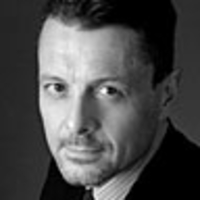
Faisal Shahzad has been formally charged with five counts of terrorism and admitted to having received bomb-making training in Pakistan. The Daily Beast’s Philip Shenon reports that the feds are investigating whether he's tied to a Pakistani American involved in the Mumbai attacks—and what role Emirates airline played in his capture.
American intelligence officials in Pakistan and Dubai have begun a massive effort to reconstruct the movements of Faisal Shahzad, the 30-year-old Pakistani American accused of attempting to set off a car bomb in Times Square, in hopes of finding others involved in the plot.
Shahzad, arrested Monday night at Kennedy International Airport in New York after he boarded a plane to Dubai, became a U.S. citizen last April but continued to live most of the last year in Pakistan.
A federal law-enforcement official told The Daily Beast that the last-minute arrest was carried out in large part in response to information from the Dubai-based airline, Emirates, which became suspicious after Shahzad’s contacts with the airline in the hours before he boarded the flight.
“If [Shahzad] got terrorist training, it was apparently pretty lousy training,” a federal law-enforcement official said.
• Bruce Riedel: What Pakistan’s Terrorists Want • Ray Kelly on How the Attack Was Foiled At a news conference in Washington, Attorney General Eric Holder, Homeland Security Secretary Janet Napolitano and other senior officials revealed that Shahzad was identified as a suspect on Sunday night and that his name was quickly added to the federal no-fly list, allowing him to be identified at Kennedy airport—albeit only after he had boarded the plane Monday night.
“I was never in any fear that we were in danger of losing him,” Holder said. Napolitano said that the government was prepared to force the Emirates jumbo jet back to the airport if it had taken off. Another law-enforcement official told The Daily Beast that Shahzad made his reservation for the Emirates flight over a cellphone on his way to the airport on Monday night, which meant that his name was added to the flight’s manifest—and then popped up on the no-fly list—only shortly before departure. The official said Shahzad planned to connect in Dubai to another flight to Islamabad, the Pakistani capital.
According to a Reuters report, Shahzad told the FBI he was working alone, and said he had no connections to any radical terror groups in Pakistan. But law-enforcement officials told The Daily Beast that the Bureau was trying to determine if there were any ties between Shahzad and another Pakistani American, David Headley, who pleaded guilty in Chicago in March to involvement in the 2008 bombings in Mumbai, India.
Like Shahzad, Headley used Dubai as a transit point for travels elsewhere in South Asia and the Middle East, where he helped scout targets for the Pakistani terrorist group known as Lashkar-e-Taiba.
The official stressed to The Daily Beast that there was no immediate evidence of any connection between Shahzad and Headley, although the official said it was “certainly disturbing” that two American citizens of Pakistani origin had been charged in such significant terrorist cases within only several months.
• Suspect Cops to Role in Terror PlotAs a result of last night’s arrest of Shahzad, officials said, the CIA and the State Department posts in Pakistan have been ordered to begin an emergency effort to reconstruct Shahzad’s travels through Pakistan, in the belief that he received terrorist training or support there, and in Dubai.
Despite Shahzad’s reported insistence that he acted alone, law-enforcement officials say it seems unlikely that he could have built a car bomb on his own and without others—in the United States or Pakistan—knowing of his plans.
A federal law-enforcement official in New York said he “took heart” at the fact that the car bombing was so badly bungled, leaving police in Manhattan with easy-to-follow clues to the identity of the bomber, including the intact Nissan Pathfinder abandoned in Times Square.
“If he got terrorist training, it was apparently pretty lousy training,” the official said.
Pakistani officials say that Shahzad was registered in city records in Karachi, the nation’s largest city, as a resident there, although his family roots are in faraway northwestern Pakistan. That region is home to leaders of Lashkar-e-Taiba and the so-called Pakistani Taliban.
News reports in Pakistan say that Shahzad recently traveled to the northern city of Peshawar, which has long served as a gateway to terrorist groups, including al Qaeda, operating in neighboring Afghanistan.
American intelligence and diplomatic officials have been asked to try to determine why Shahzad returned to Pakistan from the United States so quickly after he completed the arduous process of becoming an American citizen.
Real-estate records obtained by the Associated Press seem to suggest that the national meltdown in housing prices may have had something to do with Shahzad’s departure from the United States.
The records show that Chase Home Finance, a unit of the giant investment firm J.P. Morgan Chase, sued Shahzad last fall in foreclosing on his $200,000 mortgage on a home in Shelton, Connecticut. Shahzad had lived in the home with his wife and two children since he purchased the property in 2004.
In their news conference, Holder and the others revealed that Shahzad was initially questioned without having his Miranda rights read to him under the so-called public safety exemption—and that he cooperated and “provided useful information to authorities,” Holder said. Later in the evening, Holder said, Shahzad was given his Miranda warnings against self-incrimination, and that he continued to cooperate. Holder and the Justice Department have been harshly criticized by congressional Republicans and conservative pundits over the department’s decision to provide Miranda warnings to a young Nigerian man who attempted to blow up a Delta jet from Amsterdam on Christmas Day.
Note: This story has been updated with additional reporting since its original publication.
Philip Shenon, a former investigative reporter at The New York Times, is the author of The Commission: The Uncensored History of the 9/11 Investigation.





